Abstract
Rats bar pressed for food on a reinforcement schedule in which every response was reinforced, even though a dish of pellets was present. Initially, auditory and visual stimuli accompanied response-produced food presentation. With stimulus feedback as an added consequence of bar pressing, responding was maintained in the presence of free food; without stimulus feedback, responding decreased to a low level. Auditory feedback maintained slightly more responding than did visual feedback, and both together maintained more responding than did either separately. Almost no responding occurred when the only consequence of bar pressing was stimulus feedback. The data indicated conditioned and sensory reinforcement effects of response-produced stimulus feedback.
Full text
PDF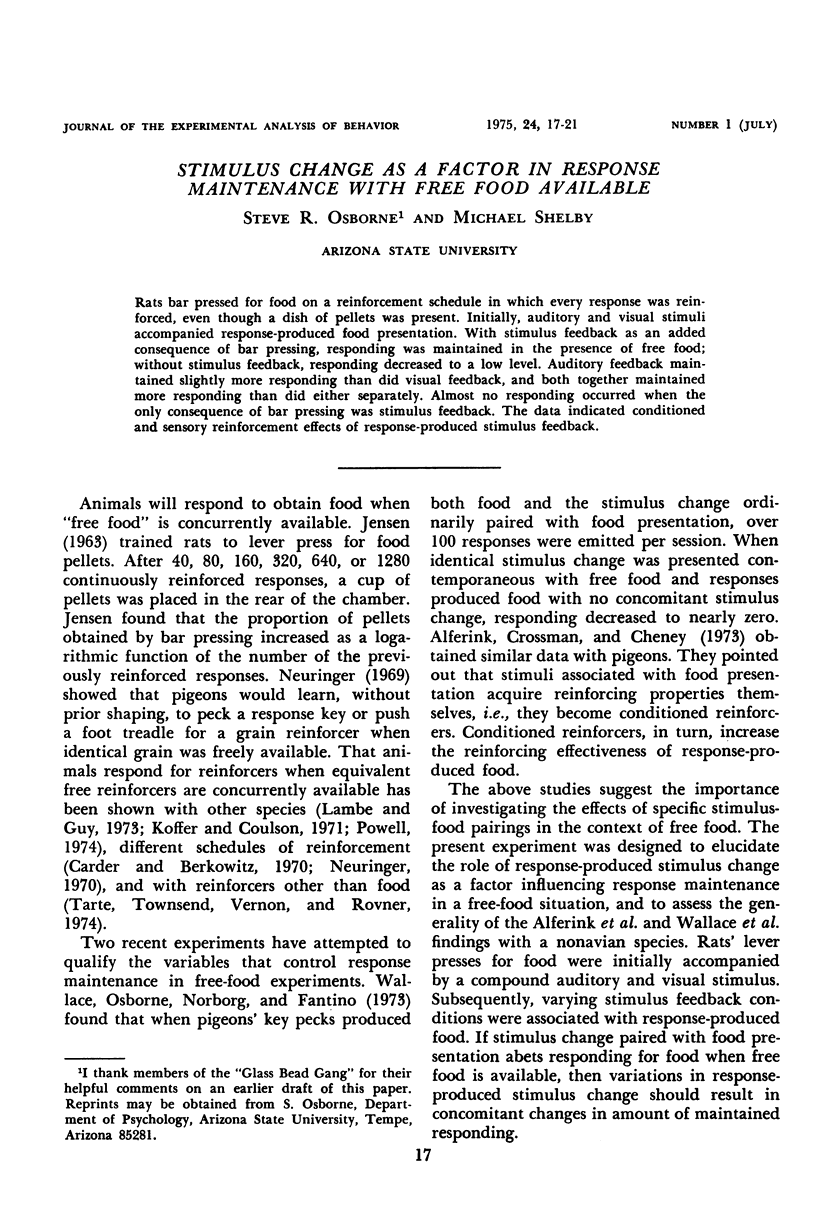
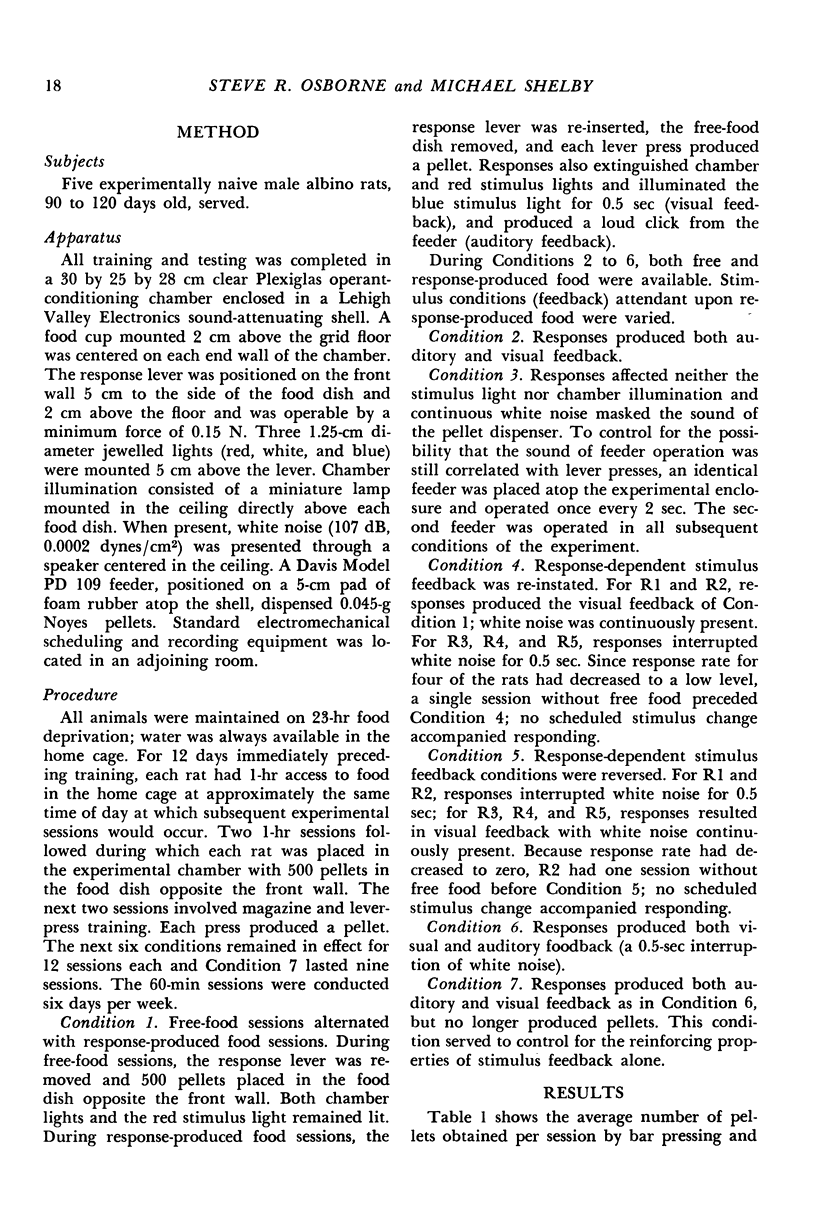
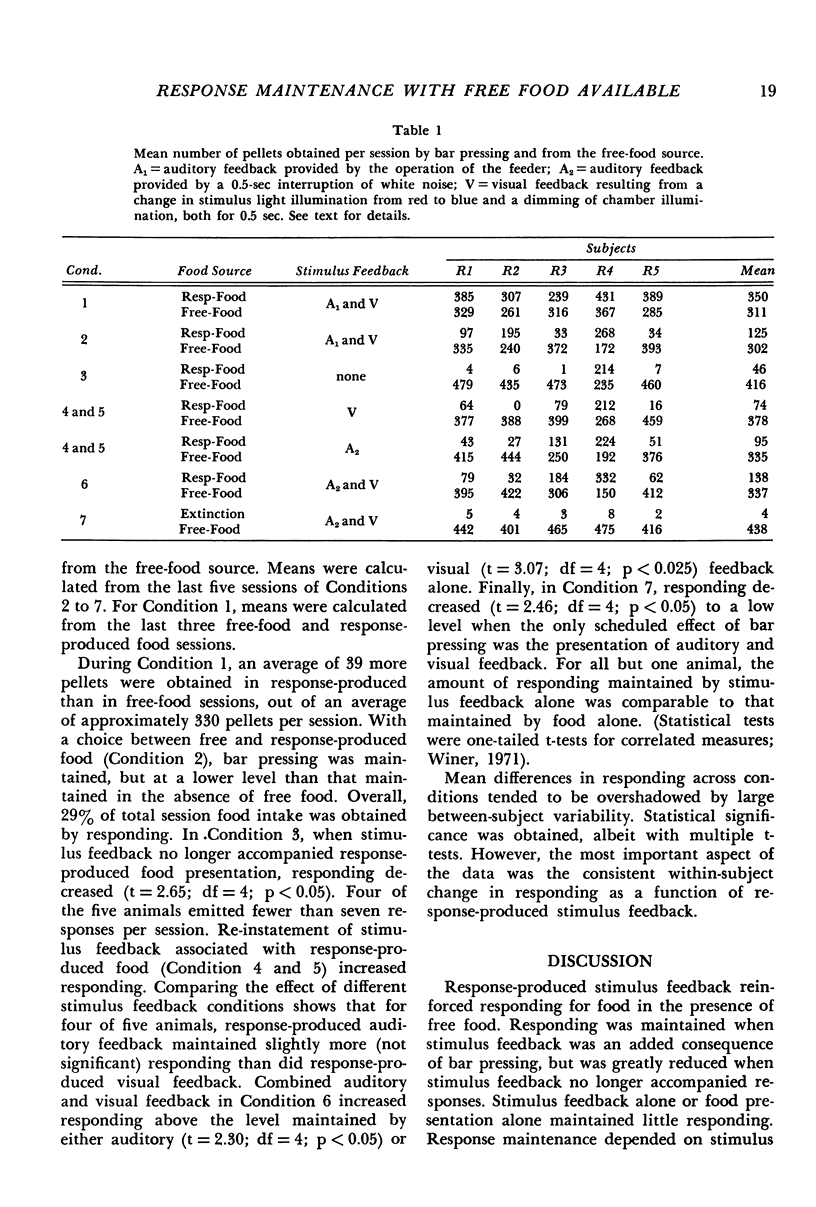
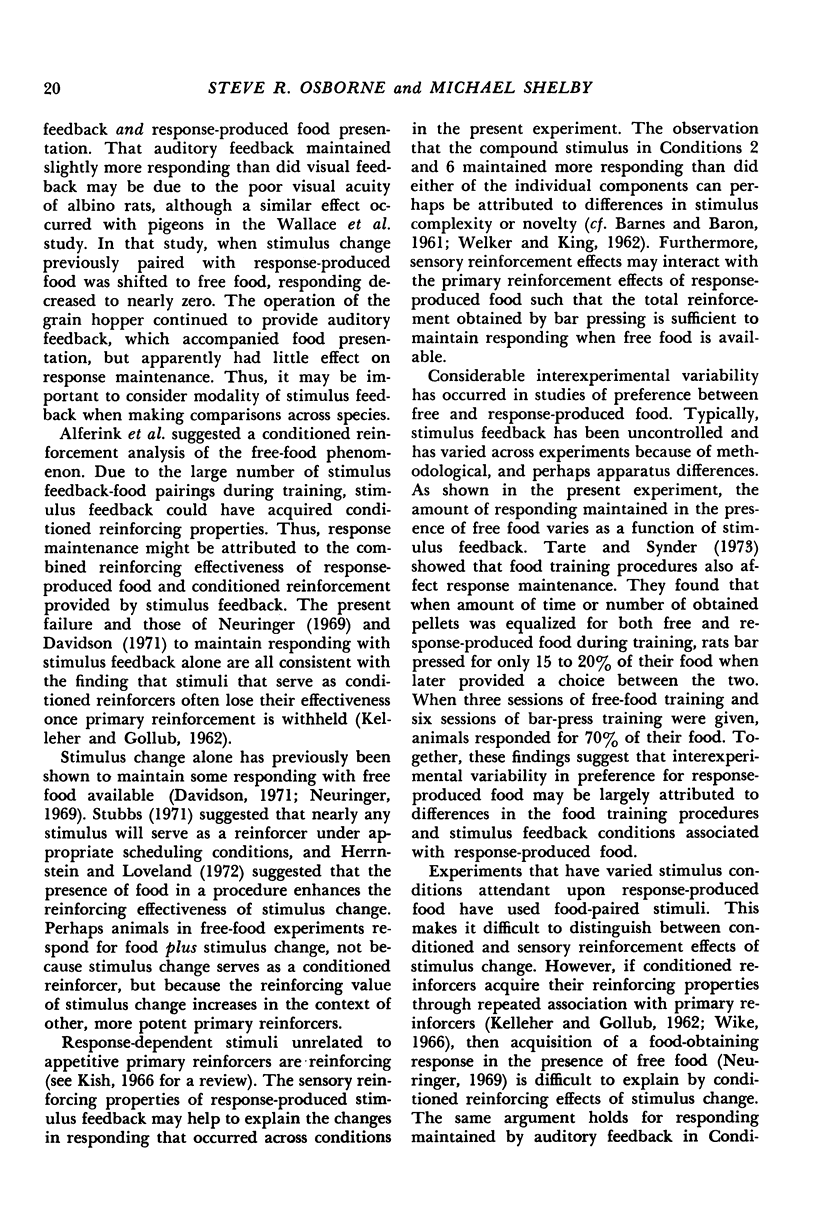
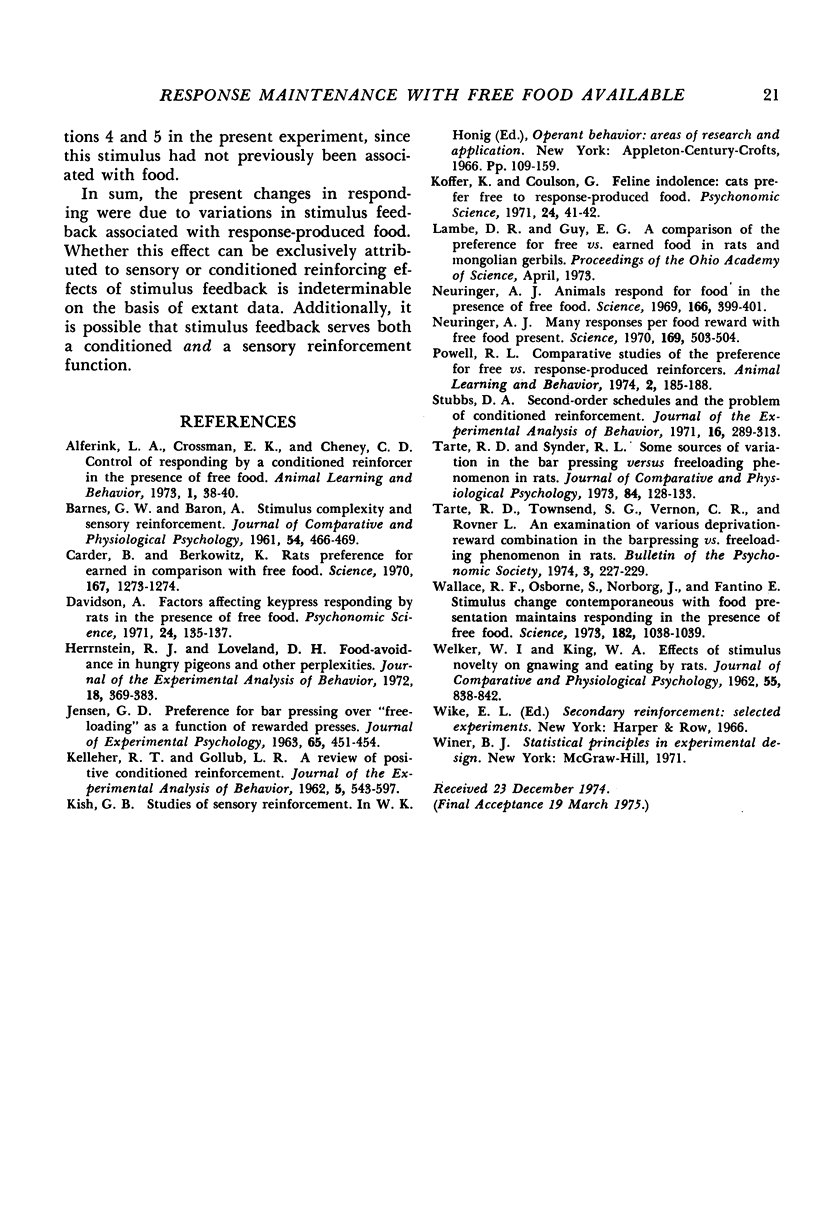
Selected References
These references are in PubMed. This may not be the complete list of references from this article.
- BARNES G. W., BARON A. Stimulus complexity and sensory reinforcement. J Comp Physiol Psychol. 1961 Aug;54:466–469. doi: 10.1037/h0046708. [DOI] [PubMed] [Google Scholar]
- Carder B., Berkowitz K. Rats' preference for earned in comparison with free food. Science. 1970 Feb 27;167(3922):1273–1274. doi: 10.1126/science.167.3922.1273. [DOI] [PubMed] [Google Scholar]
- Herrnstein R. J., Loveland D. H. Food-avoidance in hungry pigeons, and other perplexities. J Exp Anal Behav. 1972 Nov;18(3):369–383. doi: 10.1901/jeab.1972.18-369. [DOI] [PMC free article] [PubMed] [Google Scholar]
- KELLEHER R. T., GOLLUB L. R. A review of positive conditioned reinforcement. J Exp Anal Behav. 1962 Oct;5:543–597. doi: 10.1901/jeab.1962.5-s543. [DOI] [PMC free article] [PubMed] [Google Scholar]
- Neuringer A. J. Animals respond for food in the presence of free food. Science. 1969 Oct 17;166(3903):399–401. doi: 10.1126/science.166.3903.399. [DOI] [PubMed] [Google Scholar]
- Neuringer A. J. Many responses per food reward with free food present. Science. 1970 Jul 31;169(3944):503–504. doi: 10.1126/science.169.3944.503. [DOI] [PubMed] [Google Scholar]
- Stubbs D. A. Second-order schedules and the problem of conditioned reinforcement. J Exp Anal Behav. 1971 Nov;16(3):289–313. doi: 10.1901/jeab.1971.16-289. [DOI] [PMC free article] [PubMed] [Google Scholar]
- Tarte R. D., Snyder R. L. Some sources of variation in the bar-pressing versus freeloading phenomenon in rats. J Comp Physiol Psychol. 1973 Jul;84(1):128–133. doi: 10.1037/h0035048. [DOI] [PubMed] [Google Scholar]
- WELKER W. I., KING W. A. Effects of stimulus novelty on gnawing and eating by rats. J Comp Physiol Psychol. 1962 Oct;55:838–842. doi: 10.1037/h0045668. [DOI] [PubMed] [Google Scholar]
- Wallace R. F., Osborne S., Norborg J., Fantino E. Stimulus change contemporaneous with food presentation maintains responding in the presence of free food. Science. 1973 Dec 7;182(4116):1038–1039. doi: 10.1126/science.182.4116.1038. [DOI] [PubMed] [Google Scholar]


